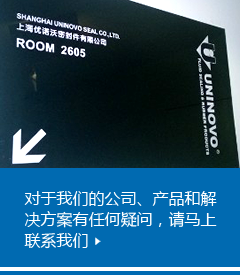What is VMQ/Silicone?
2025/10/17 view:
Physical and chemical properties:
VMQ (Silicone – Vinyl Methyl Silicone Rubber) is a synthetic elastomer based on a siloxane (Si–O–Si) backbone modified with vinyl and methyl groups. This type of rubber stands out for its excellent resistance to extreme temperatures, maintaining its mechanical and sealing properties in both intense cold and prolonged heat.Its chemical stability and low reactivity make it ideal for applications requiring physiological inertness, being common in food, pharmaceutical, and medical environments (FDA-grade silicone versions). In addition, VMQ offers remarkable resistance to UV radiation, ozone, and adverse weather conditions.
Service temperature:
Approximately −60°C to +225°C, with peaks up to −100°C/300°C depending on formulation.
Hardness range:
Typically 30 to 90 Shore A.
Color:
Wide range available (translucent, brick red, black, etc.); special versions with FDA-approved pigments.
Typical applications:
Food and pharmaceutical industry: seals in CIP/SIP processes, medical equipment, valves, and connections in contact with food or medicines.
Aerospace and automotive: sealing in systems exposed to extreme temperatures and rapid variations.
Electronics: insulation and sealing of components due to its dielectric strength.
Industrial and domestic equipment: ovens, stoves, machinery with steam or continuous heat.
VMQ (Silicone – Vinyl Methyl Silicone Rubber) is a synthetic elastomer based on a siloxane (Si–O–Si) backbone modified with vinyl and methyl groups. This type of rubber stands out for its excellent resistance to extreme temperatures, maintaining its mechanical and sealing properties in both intense cold and prolonged heat.Its chemical stability and low reactivity make it ideal for applications requiring physiological inertness, being common in food, pharmaceutical, and medical environments (FDA-grade silicone versions). In addition, VMQ offers remarkable resistance to UV radiation, ozone, and adverse weather conditions.
Service temperature:
Approximately −60°C to +225°C, with peaks up to −100°C/300°C depending on formulation.
Hardness range:
Typically 30 to 90 Shore A.
Color:
Wide range available (translucent, brick red, black, etc.); special versions with FDA-approved pigments.
Typical applications:
Food and pharmaceutical industry: seals in CIP/SIP processes, medical equipment, valves, and connections in contact with food or medicines.
Aerospace and automotive: sealing in systems exposed to extreme temperatures and rapid variations.
Electronics: insulation and sealing of components due to its dielectric strength.
Industrial and domestic equipment: ovens, stoves, machinery with steam or continuous heat.
- Pre:None
- Next:Viton® Selection Guide 2025/10/16

